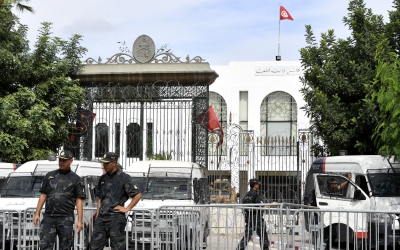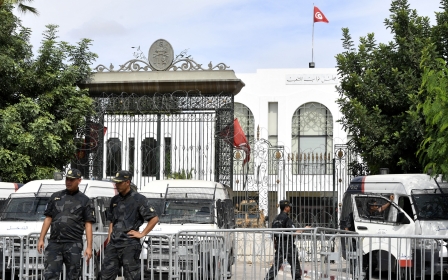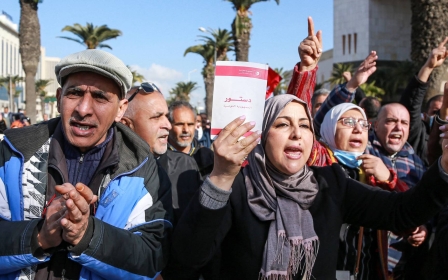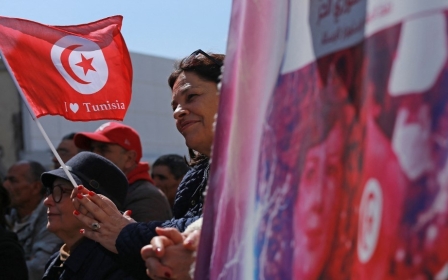Tunisia: President dissolves parliament after it votes online to reject his power grab
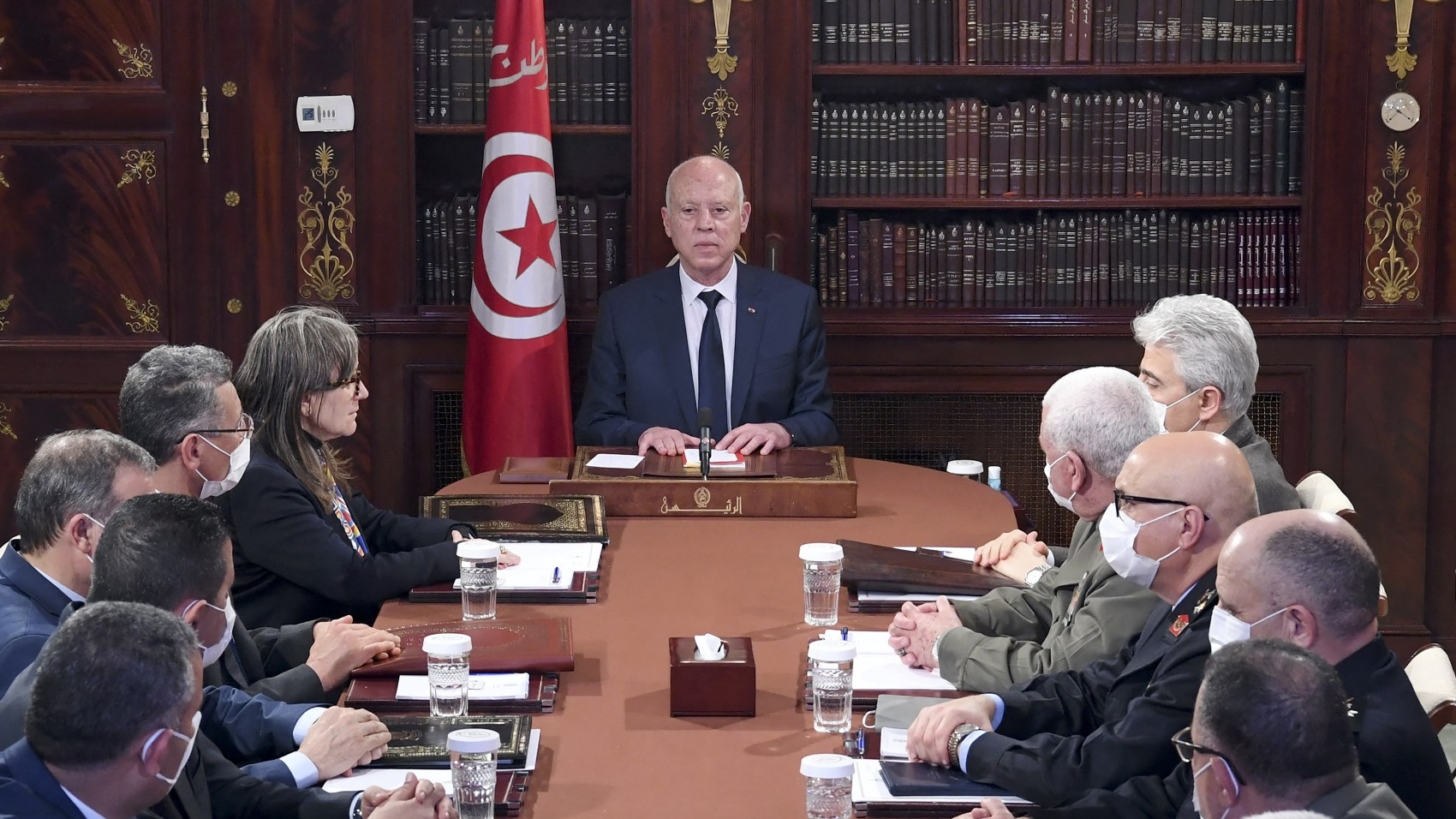
Tunisia's President Kais Saied on Wednesday dissolved the country's parliament and said MPs would be prosecuted, extending an eight-month power grab and intensifying the country's political crisis.
Saied made the announcement at a meeting of the National Security Council, hours after parliamentarians held a plenary session online and voted through a bill against "exceptional measures" taken by Saied last year.
"Today, at this historic moment, I announce the dissolution of the Assembly of Representatives of the people, to preserve the state and its institutions," he said in a statement carried on state TV.
He denounced parliament's move as a "coup attempt" and said those responsible had "betrayed" the nation.
"They will be criminally prosecuted," Saied said.
New MEE newsletter: Jerusalem Dispatch
Sign up to get the latest insights and analysis on Israel-Palestine, alongside Turkey Unpacked and other MEE newsletters
The country's official gazette confirmed Saied had issued a decree late on Wednesday dissolving parliament.
Zoom and Teams down
The online video applications Zoom and Teams had stopped working across Tunisia on Wednesday afternoon as the country's lawmakers held their first session online since Saied's suspension of parliament.
Tunisian journalists and Middle East Eye sources on the ground confirmed that the two platforms were inaccessible from 2pm on Wednesday, when the online parliamentary meeting was scheduled to begin on Zoom.
The official website of parliament was also blocked, according to the same sources.
After the two platforms were blocked, the MPs moved their meeting to the GoToMeeting platform, a source from the Ennahda party's media office told MEE.
Some 123 MPs took part in the session, which was convened to vote on controversial measures taken by Saied last July, including the suspension of parliament and the sacking of the prime minister, along with the seizure of vast judicial and legislative powers.
The move has been denounced as a coup by most political parties.
Towards the end of the session, 116 MPs voted in favour of the law that was intended to invalidate Saied's power grab.
Parliament required 109 votes to pass a law.
Power grab
On 25 July, Saied announced a raft of controversial measures, revealed by Middle East Eye two months earlier, including the suspension of parliament and the sacking of the prime minister.
The president also shut down the country's independent national Anti-Corruption Authority and sidelined the Independent High Authority for Elections.
Last month, he dissolved the Supreme Judicial Council - the body that deals with judicial independence - and granted himself control over the selection and promotion of judges.
Saied has cited rocketing unemployment, rampant corruption and the coronavirus pandemic as reasons for his power grab.
His measures have been followed by a crackdown on the opposition and their protests.
Many have faced trials before military and civilian courts and given jail sentences for charges denounced by rights groups as politically motivated.
Middle East Eye delivers independent and unrivalled coverage and analysis of the Middle East, North Africa and beyond. To learn more about republishing this content and the associated fees, please fill out this form. More about MEE can be found here.


